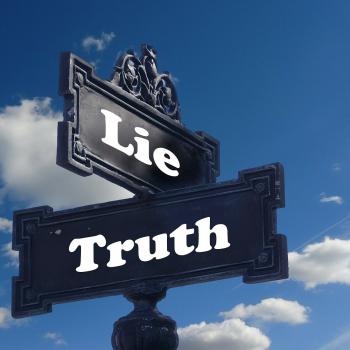I’ve been really disturbed by what I’ve been seeing on social media lately regarding victims of sexual assault. I’m concerned about the allegation against SCOTUS nominee Brett Kavanaugh, and I’m utterly appalled by this tweet by the President (as well as the fact that over 72k people “liked” it as of this writing):
I have no doubt that, if the attack on Dr. Ford was as bad as she says, charges would have been immediately filed with local Law Enforcement Authorities by either her or her loving parents. I ask that she bring those filings forward so that we can learn date, time, and place!
— Donald J. Trump (@realDonaldTrump) September 21, 2018
I’m not surprised that a man who has openly bragged about committing sexual assault would make such an ignorant comment. I am angry, and frustrated, because Trump is echoing a statement I’ve seen over and over again within the last week. “Why didn’t she go to the police? Why didn’t her parents report it if she didn’t?” etc.
If you are one of those people who have asked those questions, and if you’re sincerely interested in learning the answer, I beg of you read the following articles. They may help you understand why so many sexual assault victims either don’t report their assaults to the police, or may wait days, months, weeks, years, or even decades to do so.
When a teenage girl reports being raped by Simcha Fisher
What do we owe her now? in the Washington Post
Why Women Can Take Years to Come Forward With Sexual Assault Allegations in the New York Times
I also ask you to consider the following hypothetical scenarios:
A young teen is sexually assaulted at a party. She was underage and had been drinking. Ashamed, humiliated, scared, and depressed, she does not tell her parents. Because she believes the narrative that it was her fault for putting herself in that situation, or that the clothes she was wearing or the behavior she engaged in led her assailants on and justified their behavior, she does not report the incident to police. It’s not a crime, popular culture insists. It’s just boys being boys and engaging in typical male horseplay. Certainly it doesn’t rise to the level of criminal conduct. Instead of reporting it, she shoves the incident and the related trauma to the back of her mind and tries to forget it ever happened.
But the trauma follows her. It affects her career, her relationships, her marriage, and her family. Eventually, she starts going to therapy to try and work through her issues. Around that same time, one of her assailants is rising up the political ladder. She starts hearing his name and seeing his face everywhere, and the traumatic event is brought to the forefront. She works through it in therapy but still isn’t ready, at that point in time, to confront her assailant.
Then, however, her assailant is nominated for a very high political office. His name and face are again plastered across news media. By this point, the victim has come to realize that what happened to her was wrong and did, in fact, rise to the level of criminal conduct. It’s very unlikely her assailant would be convicted of criminal conduct, given the length of time that has passed since the incident and the lack of physical evidence. But she feels obligated to speak up and say that she doesn’t think that person should be appointed to a high political office, given how he had no issues with sexual assault in high school. So, even though she knows that the media will smear her name and threaten her family, and even though she knows the country had no problem whatsoever electing an admitted sexual abuser to the office of the presidency, she speaks up.
Consider, too, the following scenario:
A young teen is sexually assaulted at a party. She was underage and had been drinking. Ashamed, humiliated, scared, and depressed, she does not tell her parents. Because she believes the narrative that it was her fault for putting herself in that situation, or that the clothes she was wearing or the behavior she engaged in led her assailants on and justified their behavior, she does not report the incident to police. It’s not a crime, popular culture insists. It’s just boys being boys and engaging in typical male horseplay. Certainly it doesn’t rise to the level of criminal conduct. Instead of reporting it, she shoves the incident and the related trauma to the back of her mind and tries to forget it ever happened.
But the trauma follows her. It affects her career, her relationships, her marriage, and her family. Eventually, she starts going to therapy to try and work through her issues.
Six years later, a man she went to high school with is nominated for a high political office. Even though she knows he did not assault her, she decides to accuse him of the assault because she’s concerned that there’s a small chance that Roe v Wade might be overturned if he is appointed, despite the fact that this nominee shows no inclination whatsoever to do so, and that merely overturning Roe v Wade won’t make abortion illegal in all fifty states.
Even though she knows that the media will smear her name and threaten her family, and even though she knows the country had no problem whatsoever electing an admitted sexual abuser to the office of the presidency, she decides to go forward with the lie.
So what if her career is destroyed and she’s labeled as a lying whore in the media and her family must go into hiding for months on end? So what if she becomes the target of a defamation lawsuit that could ultimately bankrupt her family? It’s a small price to pay if it means torpedoing this specific nomination on the off chance that the Senate might have a Democratic majority after the midterm elections. She doesn’t mind making herself and her family the sacrificial lamb on the altar of legal abortion.
Which scenario do you think is more likely?
Frankly, I think the first scenario is more likely, which is why there needs to be a thorough investigation into this sexual assault allegation — even if it means delaying the nomination process until after the midterm elections.












